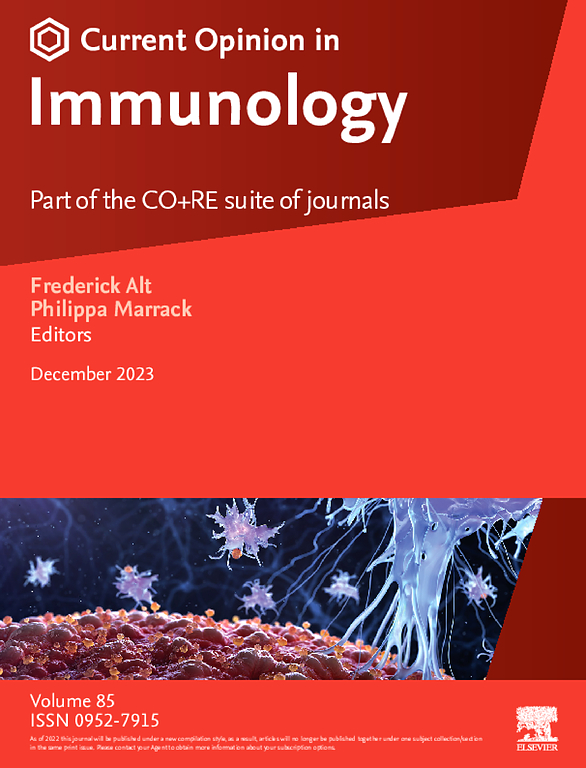促进自身免疫中调节性T细胞功能的药物治疗策略
IF 5.8
2区 医学
Q1 IMMUNOLOGY
引用次数: 0
摘要
当自身抗原特异性T细胞和B细胞逃避中枢和外周耐受机制时,自身免疫性疾病就会出现。其中一种机制是通过调节性T细胞(Tregs)控制自身反应性,它在抑制自身免疫中起重要作用。因此,开发增强或恢复treg功能的方法,以预防或治疗自身免疫,诱导耐受性,从而减少对广泛免疫抑制剂的依赖,是人们非常感兴趣的。策略包括直接在体内或通过过继细胞治疗增加treg的数量和/或功能。在这里,我们回顾了最近的进展,我们的理解如何药理学方法可以通过重新利用已建立的药物治疗或应用新疗法来增强Treg功能在体内。具体来说,我们讨论了促进treg的药物的潜力,包括白细胞介素-2及其衍生物,肿瘤坏死因子受体2激动剂,以及保存treg的酪氨酸激酶2抑制剂。我们讨论了CTLA-4免疫球蛋白的共刺激阻断如何影响耐受性环境,并考虑是否需要淋巴消耗疗法,如抗胸腺细胞球蛋白和teplizumab,来调节环境以获得更好的treg促进作用。我们关注促treg药物在1型糖尿病中的潜在应用,并从移植中获取证据。随着多种药物治疗策略在体内优化Tregs,有效和持久地诱导自身免疫性疾病缓解的新方法大有希望。本文章由计算机程序翻译,如有差异,请以英文原文为准。
Pharmacotherapeutic strategies to promote regulatory T cell function in autoimmunity
Autoimmune diseases arise when self-antigen-specific T and B cells escape central and peripheral mechanisms of tolerance. One such mechanism is control of autoreactivity by regulatory T cells (Tregs), which have an essential role in suppressing autoimmunity. Consequently, there is significant interest in developing ways to boost or restore the function of Tregs in order to prevent or treat autoimmunity, induce tolerance, and thus reduce the reliance on broadly immunosuppressive agents. Strategies include enhancing the numbers and/or function of Tregs directly in vivo or via adoptive cell therapy. Here, we review recent advances in our understanding of how pharmacologic approaches can be applied to enhance Treg function in vivo through repurposing of established drug therapies or application of new therapies. Specifically, we discuss the potential of Treg-promoting drugs, including interleukin-2 and its derivatives, and tumor necrosis factor receptor 2 agonists, as well as Treg-preserving tyrosine kinase 2 inhibitors. We discuss how co-stimulatory blockade with CTLA-4 immunoglobulin affects tolerogenic environments and consider whether lymphodepleting therapies, such as antithymocyte globulin and teplizumab, might be needed to condition the environment for better Treg-promoting effects. We focus on the potential application of Treg-promoting drugs in type 1 diabetes and draw on evidence from transplantation. With multiple pharmacotherapeutic strategies to optimize Tregs in vivo, there is significant promise for new approaches to effectively and durably induce autoimmune disease remission.
求助全文
通过发布文献求助,成功后即可免费获取论文全文。
去求助
来源期刊
CiteScore
13.30
自引率
1.40%
发文量
94
审稿时长
67 days
期刊介绍:
Current Opinion in Immunology aims to stimulate scientifically grounded, interdisciplinary, multi-scale debate and exchange of ideas. It contains polished, concise and timely reviews and opinions, with particular emphasis on those articles published in the past two years. In addition to describing recent trends, the authors are encouraged to give their subjective opinion of the topics discussed.
In Current Opinion in Immunology we help the reader by providing in a systematic manner: 1. The views of experts on current advances in their field in a clear and readable form. 2. Evaluations of the most interesting papers, annotated by experts, from the great wealth of original publications.
Current Opinion in Immunology will serve as an invaluable source of information for researchers, lecturers, teachers, professionals, policy makers and students.
Current Opinion in Immunology builds on Elsevier''s reputation for excellence in scientific publishing and long-standing commitment to communicating reproducible biomedical research targeted at improving human health. It is a companion to the new Gold Open Access journal Current Research in Immunology and is part of the Current Opinion and Research(CO+RE) suite of journals. All CO+RE journals leverage the Current Opinion legacy-of editorial excellence, high-impact, and global reach-to ensure they are a widely read resource that is integral to scientists'' workflow.

 求助内容:
求助内容: 应助结果提醒方式:
应助结果提醒方式:


